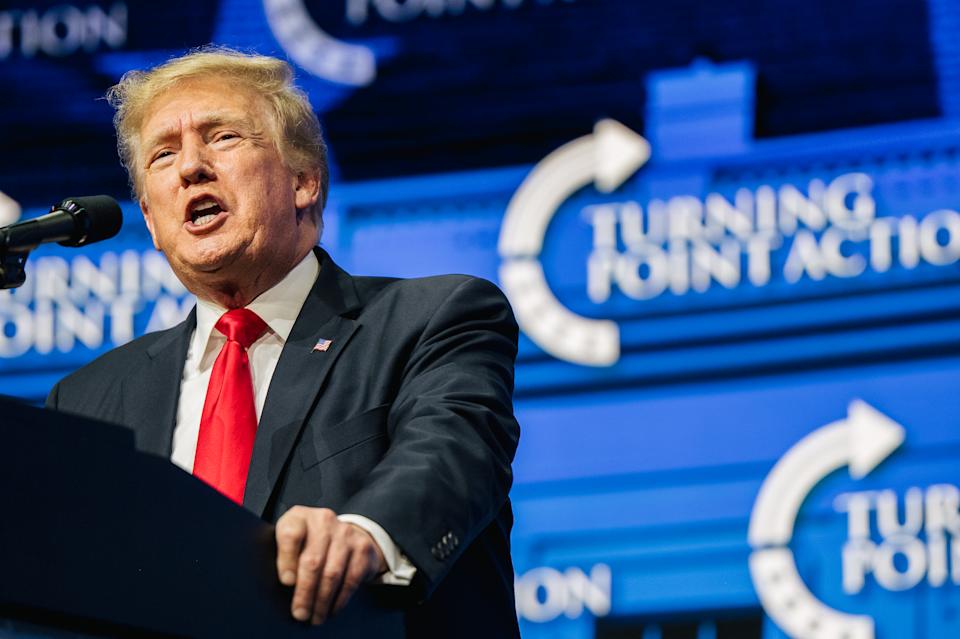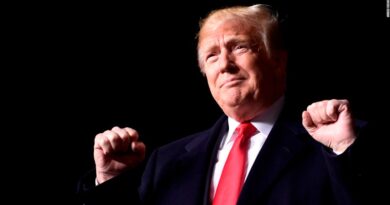Trump’s claim that the election was stolen is a ‘fiasco for our democracy’: Marty Baron
The editor Marty Baron was famously portrayed by Liev Schreiber in the movie “Spotlight,” which chronicles The Boston Globe’s exposure of pervasive abuse by Catholic priests. After leaving The Globe, Baron began another difficult assignment: leading The Washington Post during Donald Trump’s tumultuous presidency.
His time at the helm of the paper ended with his retirement in February. In an interview this week for Influencers with Andy Serwer, Baron reflected on Trump’s legacies on the news business.
While Baron led three major newspapers including The Miami Herald during his decades-long career, he never faced a challenge like covering Trump’s administration. The Washington Post made fact-checking Trump a signature area of its coverage under Baron and documented 30,573 false or misleading claims from Trump in just four years.
Baron says that Trump’s most pervasive false claim — that the 2020 election was stolen based on widespread voter fraud — is not only wrong but also “a fiasco for our democracy.”
‘Pretty remarkable and incredibly disturbing’
The ongoing denial of both the 2020 election results and the severity of the attack on the U.S. Capitol on Jan. 6 is “challenging the legitimacy of our democracy and is hugely dangerous,” says Baron, author of the forthcoming book “Collision of Power: Trump, Bezos, and The Washington Post.”
Trump never formally conceded the 2020 race, which he lost by over 7 million votes. And over 60 lawsuits brought by Trump and his allies went nowhere due to a lack of merit.


In recent months, Trump has continued to falsely claim the election was corrupt.
When it comes to the Jan. 6 attack on the Capitol, Trump has alternated between minimizing the violence and suggesting that far-left anti-fascism activists known as Antifa and Black Lives Matter protesters played a role in the unrest. In fact, hundreds of videos from the day clearly show Trump supporters listening to the then-president at a rally outside the White House before walking down the National Mall to the Capitol.
Over 100 D.C. and Capitol police officers were injured on Jan. 6. Capitol Police Officer Brian Sicknick suffered a stroke and died in the immediate aftermath of the riot, and four more officers who responded to the attack have died by suicide.
Baron notes the extensive video exists yet still “you have a president saying that they were hugging and kissing the police — that’s just ridiculous.” He added that Trump’s ability to create his own alternative reality “is pretty remarkable and incredibly disturbing.”
‘He was living in his own reality’
While many of Trump’s statements were demonstrably false, The Washington Post and other news outlets have wrestled with whether to call them “lies.”
“Trump really changed things because of the frequency of his lies and his falsehoods and his misleading statements and what have you,” Baron said.
Still, Baron said, it was tough to prove that Trump knew his statements were false. “He was living in his own reality,” Baron said. “In some ways, it seemed deluded and so does that constitute a lie?”
Other news outlets came to different conclusions. The New York Times, beginning in 2016, began to call Trump’s statements lies, culminating in a 2021 investigation of his “persistent repetition of lies.” Other outlets, like CNN, have also used the term often to describe Trump’s falsehoods.
The Washington Post, with a different approach, has chosen more often to look at Trump’s “false or misleading claims.”
A reason for the policy, Baron notes, is “when you start using those words, people focus more on your language than they do on the fact that the information itself is false.”
Trump’s impact on the business of news
Regardless of whether news outlets called Trump’s statements lies or simply misinformation, his presidency coincided with an increased interest in the press known as the “Trump bump.”
In November 2020, Axios reported that the Washington Post was nearing 3 million digital subscribers, more than tripling the number it had before Trump’s presidency in 2016.


Trump often took credit for the surge in interest in news and bragged that the media would “tank” without him. Since he left office, viewership at mainstream media outlets has indeed fallen.
But Baron dismisses the idea that Trump’s term in office benefited the media in every way.
“I don’t think it was a bull market for the public’s view of the media,” he said of Trump and his allies’ continued attacks on the industry. “While certain media outlets did enjoy rising subscriptions or rising ratings … that doesn’t necessarily mean we’re in a very good place with regard to media in this country.”
Ben Werschkul is a writer and producer for Yahoo Finance in Washington, DC.
Both parties think they can turn inflation worries to their advantage
A ‘no-brainer’: Why Democrats will keep pushing for increased IRS funding
Read the latest financial and business news from Yahoo Finance
Follow Yahoo Finance on Twitter, Facebook, Instagram, Flipboard, LinkedIn, YouTube, and reddit.


